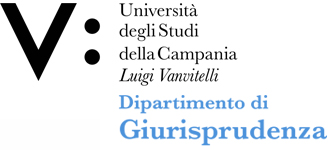Mariano MENNA
Insegnamento di DIRITTO PENITENZIARIO E GIURISDIZIONE DI SORVEGLIANZA
Corso di laurea magistrale a ciclo unico in GIURISPRUDENZA
SSD: IUS/16
CFU: 6,00
ORE PER UNITÀ DIDATTICA: 36,00
Periodo di Erogazione: Secondo Semestre
Italiano
| Lingua di insegnamento | ITALIANO e SPAGNOLO |
| Contenuti | Il corso ha durata semestrale e si avvale di lezioni itineranti presso gli istituti di detenzione e gli organi amministrativi e giudiziari che li gestiscono, per approfondire l’ esperienza didattica attraverso il contatto diretto con funzioni e compiti di magistrati e funzionari amministrativi. |
| Testi di riferimento | MANUALE CONSIGLIATO |
| Obiettivi formativi | L'insegnamento ha ad oggetto lo studio e l’approfondimento delle problematiche inerenti al diritto penitenziario ed alla giurisdizione di sorveglianza, che nell’ attuale sistema penale hanno acquistato rilievo centrale nel sistema penale, soprattutto perché gestiscono, rispettivamente, la commisurazione della pena e le misure alternative al carcere, oltre alle situazioni inerenti ai diritti dei detenuti. |
| Prerequisiti | Esami propedeutici: |
| Metodologie didattiche | Didattica frontale ed attività seminariali per 36 ore. Sono previsti dibattiti, esercitazioni e frequentazioni di istituti penitenziari, nonché di uffici giudiziari |
| Metodi di valutazione | Esame orale. La valutazione in trentesimi terrà conto dell'assiduità della partecipazione alle lezioni, ai seminari, ed agli eventi organizzati nell'ambito del corso. Essa terrà conto, altresì, dell'approfondimento realizzato della materia (di tipo dottrinale, legislativo e giurisprudenziale), della capacità critica del candidato e del livello di preparazione. I diversi livelli di maturità e di partecipazione palesati giustificheranno una diversa valutazione: eccellente (trenta e lode), ottima (28/30), buona (25/27), discreta (21/24), sufficiente (18/20). |
| Altre informazioni | Utilizzare codici e testi normativi aggiornati. Si predisporrà un tutorato didattico. |
| Programma del corso | La cornice costituzionale e sovranazionale; L’osservazione e il trattamento; Gli elementi del trattamento; Gli elementi del trattamento; La tutela dei diritti dei detenuti; Organizzazione penitenziaria, ordine e sicurezza; Le misure alternative alla detenzione e la liberazione anticipata; Magistratura di sorveglianza e ed esecuzione penitenziaria: profili processuali; L’ordinamento penitenziario minorile. |
English
| Teaching language | ITALIAN and SPANISH |
| Contents | The course lasts six months and makes use of itinerant lessons at the detention institutions and the administrative and judicial bodies that manage them, to deepen the teaching experience through direct contact with the functions and duties of magistrates and administrative officials. |
| Textbook and course materials | RECOMMENDED MANUAL |
| Course objectives | The teaching has as its object the study and deepening of the problems inherent to the penitentiary law and the surveillance jurisdiction, which in the current criminal system have acquired central importance in the criminal system, above all because they manage, respectively, the measurement of the sentence and the alternative measures to prison, in addition to situations relating to the rights of prisoners. |
| Prerequisites | Preparatory exams: |
| Teaching methods | Frontal teaching and seminar activities for 36 hours. There will be debates, exercises and visits to prisons, as well as judicial offices with participation in cultural events. |
| Evaluation methods | Oral examination. The evaluation out of thirty will take into account the regularity of participation in lectures, seminars, and events organized within the course. It will also take into account the in-depth study of the subject (doctrinal, legislative and jurisprudential type), the critical capacity of the candidate and the level of preparation. The different levels of maturity and participation revealed will justify a different evaluation: excellent (thirty and praise), excellent (28/30), good (25/27), fair (21/24), sufficient (18/20). |
| Other information | Use up-to-date regulatory codes and texts. A didactic tutoring will be arranged. |
| Course Syllabus | The constitutional and supranational framework; Observation and treatment; The elements of the treatment; The elements of the treatment; The protection of the rights of prisoners; Penitentiary organization, order and security; Alternative measures to detention and early release; Judiciary for surveillance and penitentiary execution: procedural profiles; The juvenile penitentiary system. |








